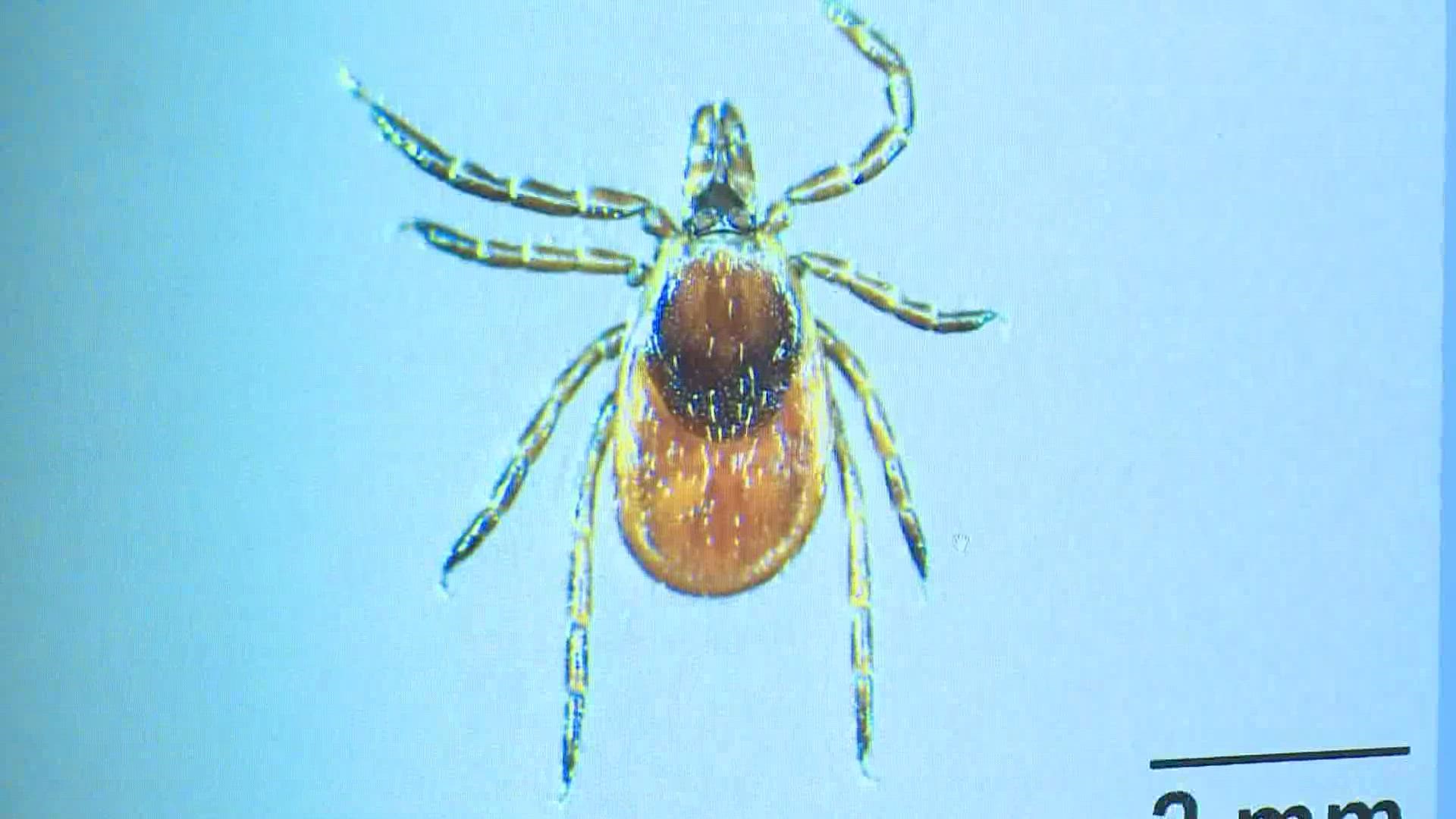POWNAL, Maine — As Maine's fall season is underway, it's also a time when deer ticks, which carry Lyme disease and other tick-borne infections, are the most active.
So far this year, according to the Maine CDC, there have been 1,872 cases of Lyme, which is tracking higher compared to this time last year.
That increase came despite hot and dry conditions this summer, which normally slows down tick activity.
Simon Fink enjoys walking the trails at Bradbury Mountain State Park.
Even as temperatures drop with fall approaching, he doesn't let his guard down against deer ticks that carry Lyme.
"I wear some protective gear, as well as long socks and that kind of thing," Fink said.
Experts said fall is the most active time of year for ticks that carry tick-borne diseases.
The adults are particularly active. The immature ticks from mid-summer have now turned into adults.
Griffin Dill manages the University of Maine Cooperative Extension Tick Lab in Orono. He said the number of deer ticks will increase over the next several weeks. That increase is expected to continue until temperatures drop below freezing for an extended period of time, which in recent years has been mid-to-late December.
"They are looking for that third and final host and get their last blood meal, lay eggs, and reproduce, " Dill explained.
Of the 2,143 deer ticks sent to the lab in 2022, 48 to 51 percent tested positive for bacteria that causes Lyme, a slight increase compared to last year. The number of samples collected from the public is about the same as in 2021, despite drought conditions over the summer.
"The drought didn't seem to alter their behavior too much," Dill explained.
Dill said deer ticks need high humidity — as much as 85% — to thrive. Over the past several months, student researchers at the University of Maine took a closer look to try to come up with answers.
"With those drought conditions, does it change the questing behavior with the ticks to make them more nocturnal?" Dill asked.
Back at Bradbury Mountain, Mink isn't surprised at the possibility ticks are adapting to a changing climate.
"They're pretty tenacious. They are going to survive us all, the ticks and the roaches," Mink said.
All the more reason, experts said, to wear protective clothing, use EPA-registered repellents, and do frequent tick checks anytime you head outdoors.
More NEWS CENTER Maine stories
.

